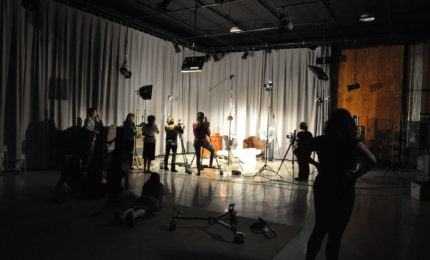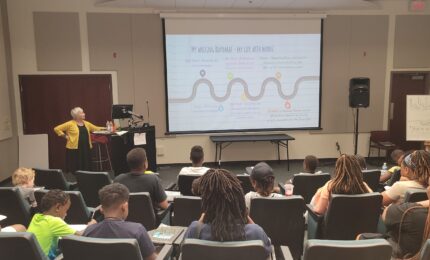Stephens College Celebrates its 10th Cohort of MFA Students in TV & Screenwriting
By Grace Smith | May 1, 2025
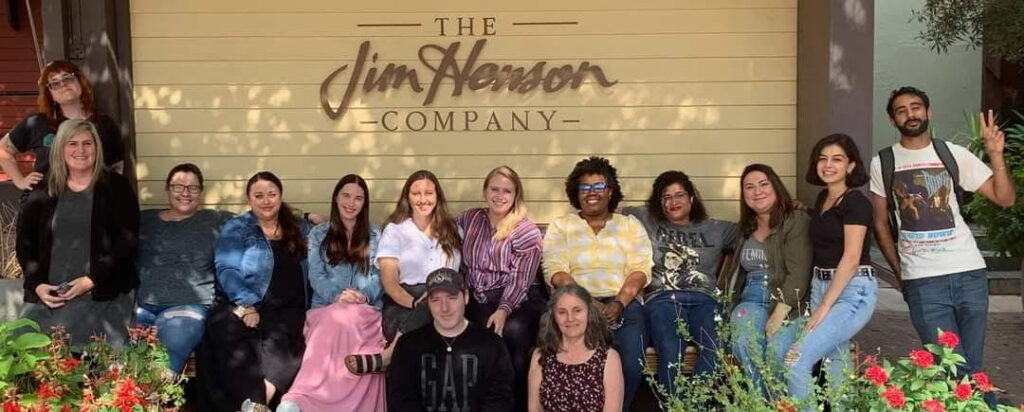
This year, Stephens College will see its 10th cohort of graduates from their MFA program in TV & Screenwriting. This program is the only low-residency screenwriting MFA program in the state of Missouri, which combines mostly online classes with in-person residencies. The residencies take place at the beginning of each semester in Los Angeles, California, where the students take part in 10 days of intensive workshops and classes with their cohort.
Dr. Rosanne Welch, a screenwriter and academic known for her work on Touched by an Angel, became involved with Stephens College in 2010 when she was asked to write a short film for the college’s annual Summer Film Institute. Later, she was brought on to create curriculum for the new MFA program when it was founded in 2015 by Ken LaZebnik, a Columbia native and screenwriter who worked with Dr. Welch on Touched by an Angel and also wrote for shows like Star Trek: Enterprise. As Stephens is a women’s college, they wanted to create a screenwriting program with a female focus.
“That’s something I have never seen in my own educational journey from bachelors to PhD and something I’m proud to show students of all genders,” says Dr. Welch, who took over as executive director of the program in 2019. The female focus of the program is something that has made it very attractive to students.
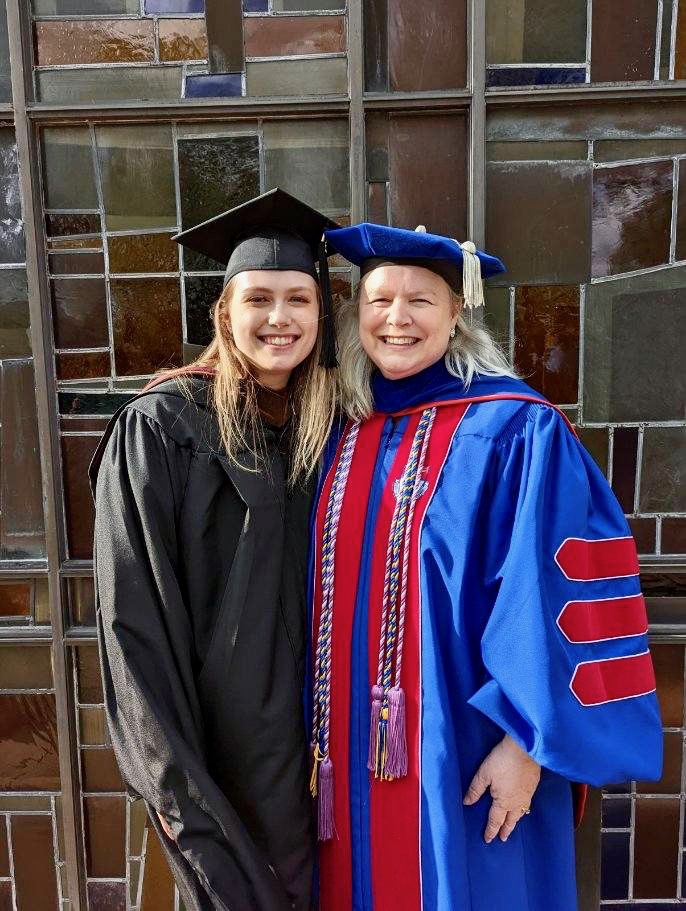
“What drew me to Stephens was how the program focused on women and under-represented groups in film,” says Hadley Houck, a 2022 graduate of the MFA program. “In my search for a program that best fit what I was looking for, I noticed that Stephens stood out this way. I didn’t even realize that’s what I was looking for until I saw it.” Other students agreed with Houck.
“One of the most important lessons I learned at Stephens is that female voices matter,” says Melle Richardson, a fellow 2022 graduate.
“The program’s mission made it feel like a great place to grow as a Latina writer,” says Alex Fernandez a 2019 graduate, who learned about the program when she took an undergraduate screenwriting course with Lazebnik, who encouraged her to apply to the MFA program. “I knew I was joining a supportive network.”
The other main draw of the program is the low-residency model, which allows students to maintain a full-time job while pursuing a graduate degree.
“This program helped me pursue my dreams while still being able to pay the bills,” Fernandez says, and Natalie Cash Petersson, a 2023 graduate, agreed with her.
“The low residency aspect of the program, for me at least, made obtaining an MFA possible,” says Petersson. “There are great film schools and programs here in New York if you have three years and $100,000 to invest. The Stephens Program allowed me to learn from the best in business during the Los Angeles residencies and to continue working with them throughout the year, albeit virtually – something many of us were doing throughout the pandemic regardless.”

The program also allows students to study from anywhere, as Dr. Welch says, “People can come from around the country (and world – we’ve had some international students) to Los Angeles for one week at the start of each semester for a Residency Workshop…Then they take the rest of their writing courses online (from the comfort of their home couches, as I say). This is the kind of graduate program that works well for working people with families who want this education and want the time to create a portfolio of scripts — but can’t move to Los Angeles for a full 2 years to do it. We offer the best of both worlds.”
“I lived in three states during my two years in the program,” says LeeAnne Lowry, a 2015 graduate of the BFA in Digital Filmmaking Program at Stephens and 2019 graduate of the MFA program. “I didn’t have to choose between my full-time work and going to grad school, and I didn’t lose out on in-person connections I made during the Los Angeles workshops. Being mostly remote, you lose some of the immersion you may get from a fully in-person program. For me, the benefits far outweighed any downsides.”
“I had always planned to pursue higher education, but raising a family took precedence, and it wasn’t until I was in my forties that my dream of returning to school would finally come true,” says Richardson. “I discovered the Stephens College MFA in TV and Screenwriting program online. The low-residency, small class size, and opportunity to go to California seemed like an
excellent fit, so I applied.”
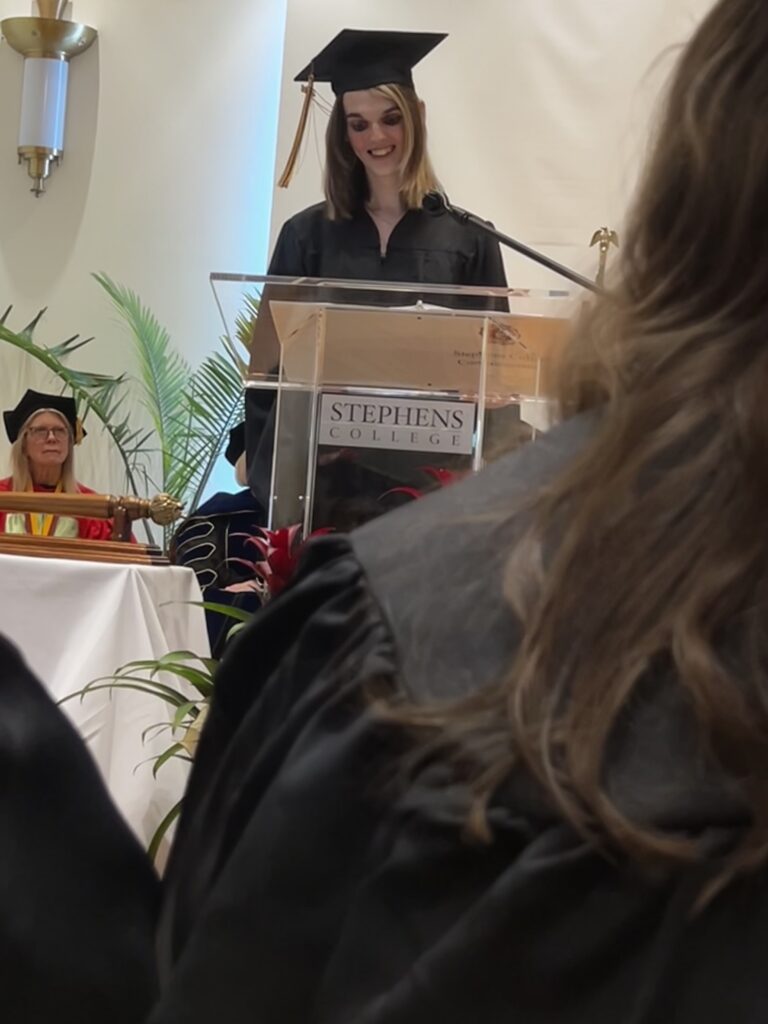
The coursework itself is also a major draw, as W.A.W. Parker, a 2019 graduate, pointed out, “The design of the Stephens program is the most writing-focused program there is.”
Dakota Grace Gibson, who graduated in 2024, also said that the program instilled many important lessons in her, “One of the most important things I learned at Stephens was that, while, yes, there are many different do’s and don’ts for script formatting and story structuring, there is no such thing as the ‘right way’ to write a script.”
The skills students learn go beyond the mechanics of screenwriting, as Fernandez says, “The program really pushed for us to practice pitching our ideas (and ourselves) to each other. It was terrifying at first, but my classmates and mentors inspired me to come out of my shell, and eventually I became very comfortable exploring ideas and collaborating on stories with the folks in my groups. I learned the fundamentals of what it’s like to participate in the natural flow of a writer’s room, which would come in handy only a few years later when I was finally staffed on my first series.”
And lastly, the connections that students make, both with each other and with faculty and mentors, seems to be one of the biggest takeaways from the program.
“One of the benefits of the low-residency program is the individual attention you receive from professional mentors who have worked in film and/or television and the personalized feedback they provide. The mentors have real-world experience as writers (like my mentor Amy Toomin Straus who wrote for Friends!),” says Richardson. And she went on to add, “The group chat from the Class of ’22 still continues today!”
“The classes themselves are extraordinarily beneficial, but it’s truly the relationships formed…that truly make it feel so special,” Gibson added. “My Cohort became like my family, and I cherish the fact that I get to be part of theirs.”

Fernandez is one of the best examples of how the relationships formed at Stephens can have a lasting impact on a career. She was connected to her mentor Ligiah Villalobos, through LaZebnik.
“Thanks to her, I landed my first job in a writer’s room as a writer’s PA on ABC’s Station 19,” says Fernznadez. “From there, I worked my way up to staff writer, then story editor. Not only that, Ligiah even hired me to write a few animated shorts for Dreamworks Spirit & Friends. Ligiah has always provided support and guidance well past my Stephens graduation, and I would not be where I am if it weren’t for her and Ken. Ligiah remains one of my most esteemed friends and mentors to this day.”
Dr. Welch points out that, like any artistic training, they cannot promise success in the industry to any student going through the program, but many have gone on to have flourishing careers like Fernandez. “So far [alumni have] written on hit shows such as “Ramy,” “13 Reasons Why,” “Seal Team,” “Generations,” and “The Equalizer”. Some of our MFA candidates would rather move into academia so we can count over 14 college film professors among our alums and a few researchers.”
“I was also invited by the program director Dr. Rosanne Welch to attend the Screenwriting Research Network Annual Conference in Vienna in 2022, and was privileged enough to present my own work at the 2023 conference,” says Petersson of her academic work in screenwriting.
Dr. Welch is proud of the work that has been done so far, but says there is more she would like to see. “We are proud to be ushering more female and underrepresented voices — and female-focused stories — into mainstream media,” she says. ”Now if we can bring more of those filmmakers to Missouri to make their movies it will be a grand slam home run for us all.”
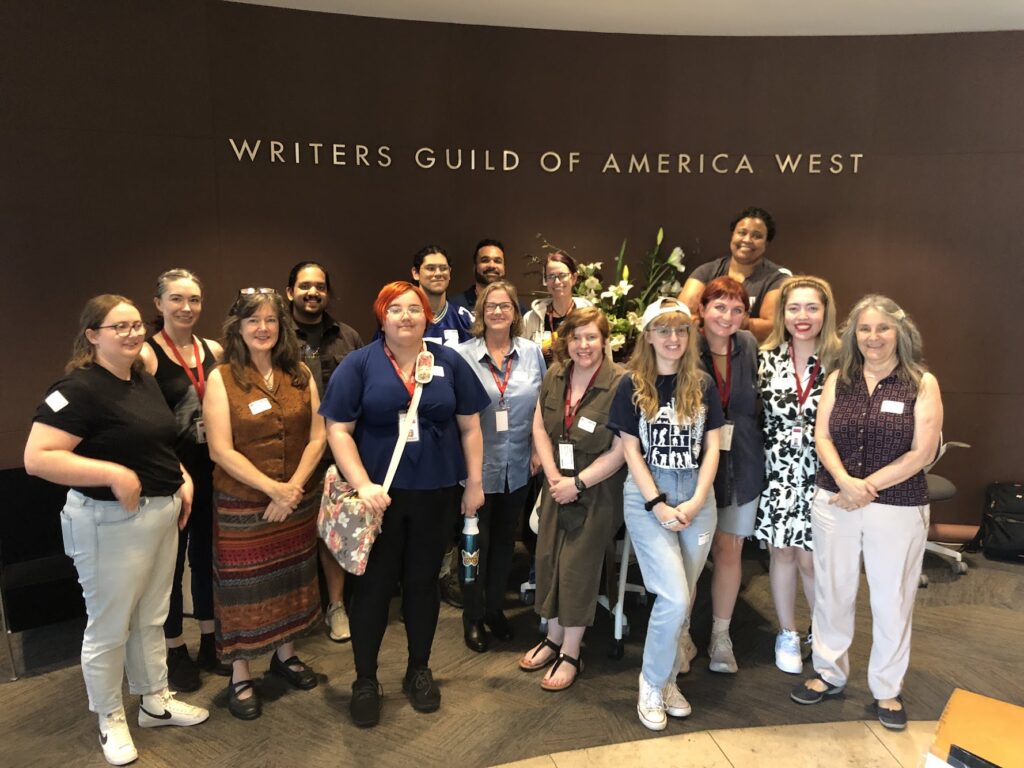
To learn more about the Stephens College MFA in TV and Screenwriting, click here.

